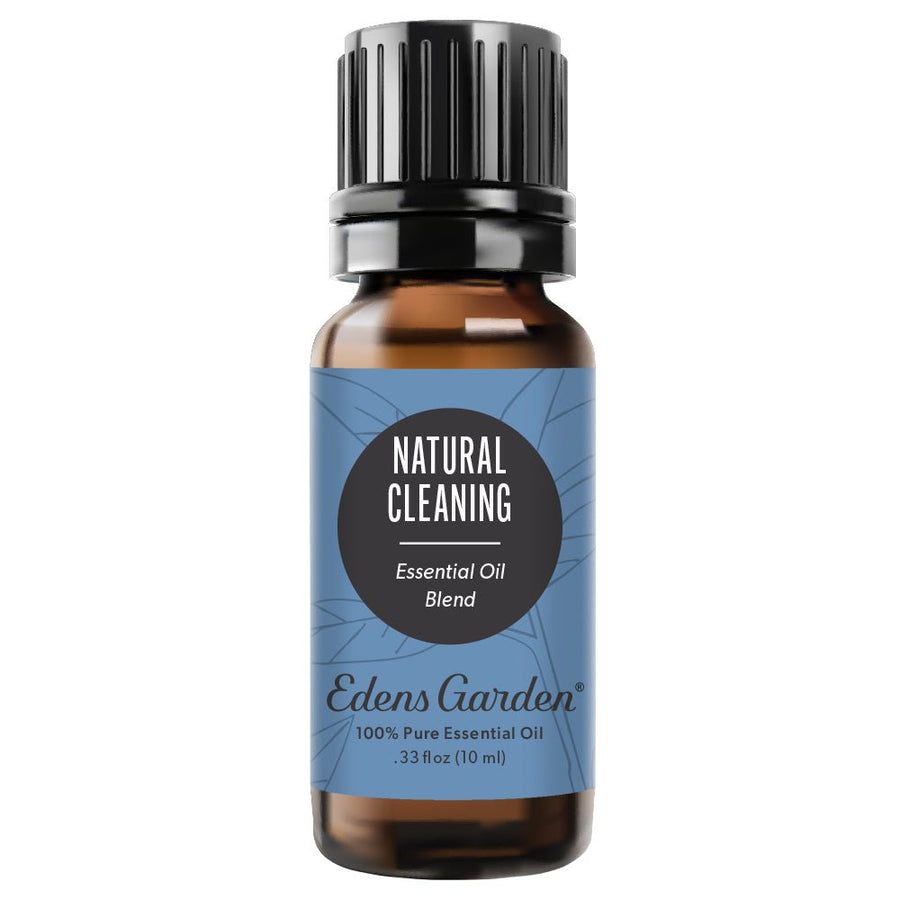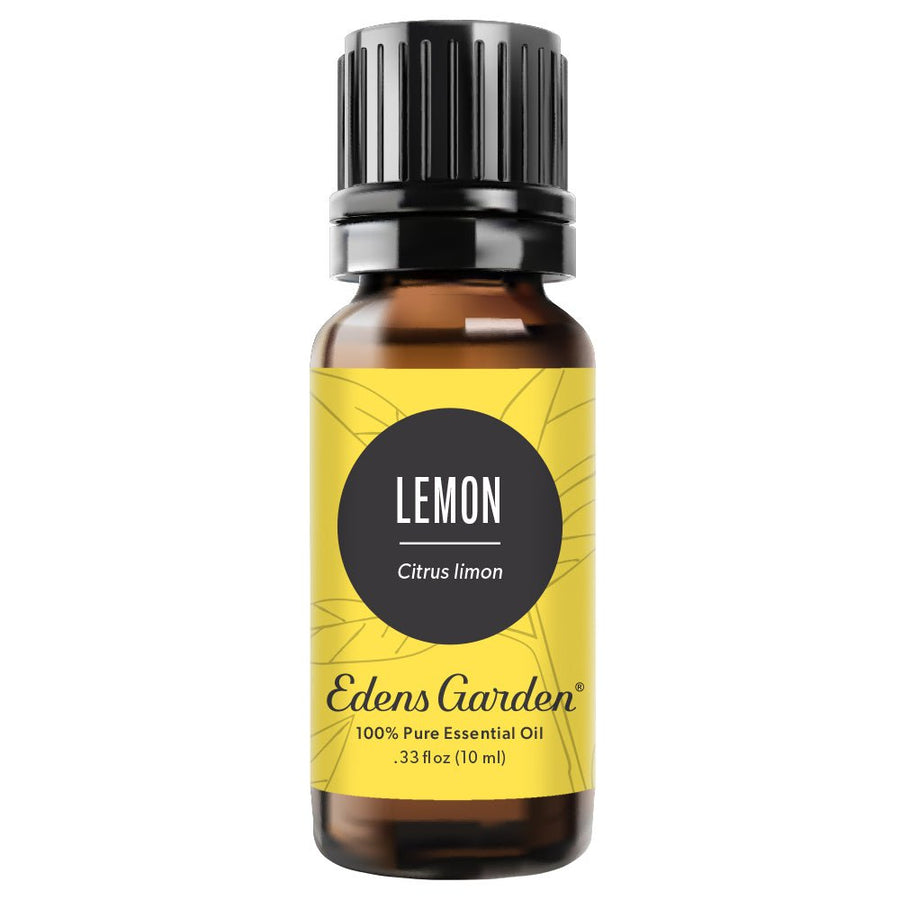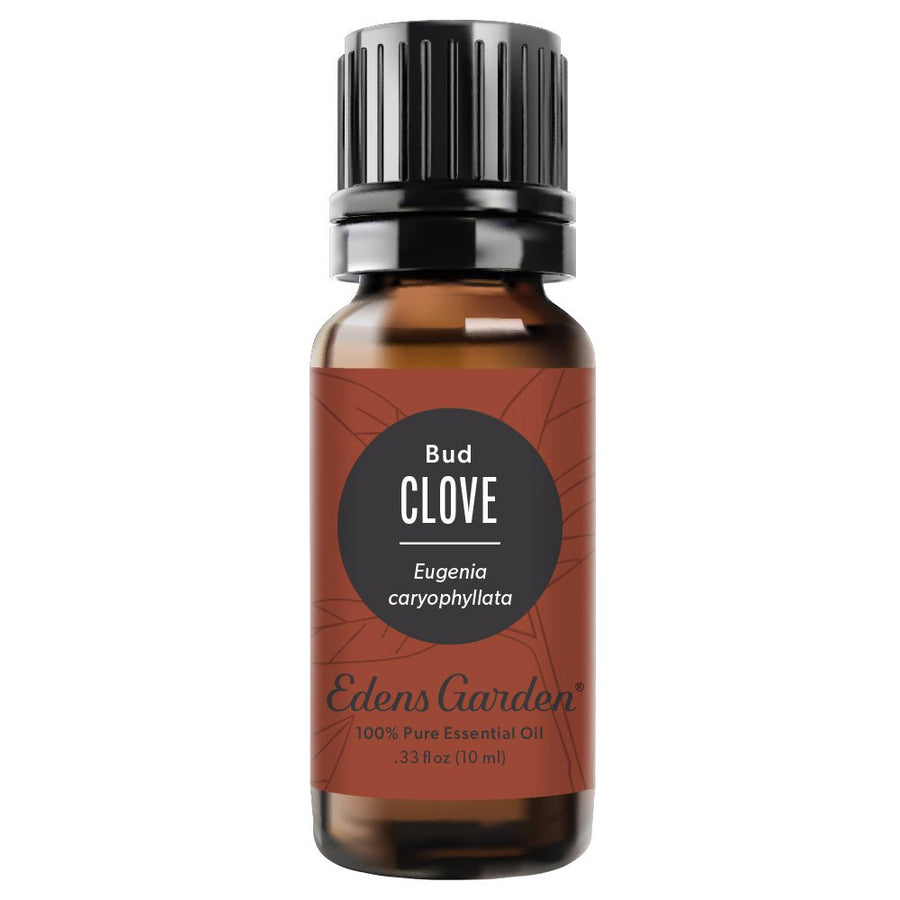The Best Essential Oils for Spring Cleaning

It's that inevitable time of year again and I always find myself thinking, how do I motivate myself to step up to spring cleaning and shake off the stagnancy of winter? Dust bunnies lurking in corners and under beds stare me down, but pulling out a bottle of homemade cleaning spray transforms my mental state every time. So ask yourself, why put it off when it smells so darn good?
Moving past dust bunnies, there is also the onset of spring and rising threats from seasonal colds, flu and other microbes. It's best to tackle these invisible threats as soon as they arise to keep germs from spreading to everyone else in the home.
So let's talk about cleaning agents. You may have heard or read reports that many of the readily available store-bought cleaning supplies are filled with chemicals that are not so great for our health. According to the American Lung Association, studies have linked “exposure to chemicals from cleaning supplies to occupational asthma and other respiratory illnesses” adding “even products advertised as "green" or "natural" may contain ingredients that can cause health problems” which include eye and throat irritation and headaches.[1]
So how do you protect yourself and your loved ones from germs while keeping them safe from exposure to harmful chemicals? Let's take a look at some powerful essential oils and their constituents with their naturally versatile and effective cleansing abilities and answer a few questions you may have about essential oils best for cleaning.
Do Essential Oils Disinfect?
The power of nature in an essential oil bottle can be transformed easily into natural DIY cleaners that not only have the versatility to wipe away germs with their antibacterial and antimicrobial constituents but also captivate your sense of smell.[2,3,4,5,6,7,8,9,10,11,12,13]
Read on to learn about essential oils that effectively battle dirt on any surface, including counters, floors, tiles, toilets, sinks, ovens, windows and wood. However, while essential oils are generally safe to use in the home for cleaning we still recommend that you keep all essential oils out of reach of children and pets.
Best Essential Oils for Cleaning
Lemon
This extraordinarily simple citrus oil has gone hand in hand with cleaning for ages - it is a gentle cleaner with a low pH for use on all surfaces and to fight environmental threats.[2] We can also thank many of its chemical components for Lemon’s fresh scent and uplifting nature.
The monoterpene limonene makes up a high percentage of Lemon oil and offers strong antibacterial action. Also found in Lemon oil, pinene, terpenene and citral contribute to its fortitude and ability to control certain environmental threats making it great to use in spaces that do not have a lot of fresh air flow.
Clove & Cinnamon Leaf
Both of these essential oils are extremely hot and potent, packing a one-two punch that will knock out any lurking microbes. In an in vitro study of essential oils against four gram-negative bacteria including e-coli, “Cinnamon oil showed promising inhibitory activity, even at low concentration.” [3,4,5]
Clove, like its spicy cousin Cinnamon, has also proven itself in studies and encompasses a “wide range of antimicrobial activities against both Gram-positive and Gram-negative bacteria, including major human pathogens'' that lead to infections such as staph, bacteria that can lead to pneumonia as well as e-coli.[6]
Natural Cleaning
For those of us who would prefer to use a ready-made cleaning blend, Edens Garden specially formulates a very effective blend called Natural Cleaning. It combines a number of powerful essential oils that have a strength that should not be overlooked. Let’s take a dive in to see what all the fuss is about.
Lavender- Bulgarian (Lavandula angustifolia) We all know that Lavender essential oil is the mother of all oils with its soothing and anxiety-relieving properties. But did you know it’s also quite capable as an antibacterial, antifungal and antimicrobial? In combination with Tea Tree oil, its potential is only strengthened as found in in-vitro studies against fungi.[7]
In another study, Lavender essential oil alone was found to be active against many species of bacteria, including some that are resistant to antibiotics such as staph (MRSA) and VRE which is a bacteria normally found in the gut but can cause complications for some.[8]
Lemongrass (Cymbopogon flexuosus) There isn't much that Lemongrass cannot fight. It is known as an airborne antimicrobial, antibacterial, antifungal and antiviral - on surfaces and on skin. The citral component which comprises most of Lemongrass gives this oil its captivating, fresh and clean aroma. It can be used to freshen up bathrooms and refrigerators, fight germs on surfaces and in the air as well as on the body and is hands down an all-around gem to keep on hand.[9,10]
Rosemary- Spanish (Rosmarinus officinalis) Not only is Rosemary known for its ability to stimulate the mind, aiding memory and improving focus and motivation but it also is an antibacterial agent against Gram-positive bacteria (bacteria that have thick cell walls).[11]
Tea Tree (Melaleuca alternifolia) Well studied and often used for its antimicrobial properties, Tea Tree essential oil whose properties include terpinen-4-ol and α-terpineol has demonstrated that “these two components contribute substantially to the oil's antibacterial and antifungal activities.”
With all this fighting power at your fingertips, let's talk about how you can put these tenacious essential oils to use in your home!
How to Clean Floors with Essential Oils
To rid your home of grime buildup on floors and enjoy the fresh aroma of essential oils we recommend using Lemon to break up any greasy buildup and combining it with Clove essential oil or Cinnamon Leaf with Castile soap and water. Castile soap is great for eliminating dirt and breaking up grime. Plus, you don't need much of it to make an effective cleaner.
The general rule is to mix approximately two tablespoons of Castile soap per gallon of water. One important thing to remember is that you should blend the essential oils into the Castile soap before adding water so that the essential oils disperse evenly throughout the mixture. If storing this blend for future use, be sure to shake it well beforehand.
- 2 tbsps of Castile soap
- 1 gallon of water
- 20 drops each Lemon, Clove and Cinnamon essential oils
How to Clean The Air with Essential Oils
Cleaning the air with essential oils is simple. If you have a diffuser and diffuser blend, you can easily dispel unwanted odors by adding 10 drops of essential oil per 100 ml of water in your diffuser and turning it on intermittently, if your diffuser has this option. Otherwise, turn it on for an hour and let it rest for an hour and repeat.
If you don't have a diffuser, make yourself a room spray by following our simple recipe. Room sprays are easy to make and can be used all over the house including the bathroom. Plus, blending it is incredibly easy. We especially recommend spraying it in bathrooms to nullify odors as well as around a room or on door knobs and other high-traffic surfaces when someone is sick.
Ingredients:
- 4 oz Glass Bottle and Spray Top
- 1 oz 190-proof Grain Alcohol (such as Everclear)
- 3 oz Distilled Water
- 40 drops Natural Cleaning essential oil blend
Instructions: Add 1 oz of Grain Alcohol to a 4 oz Glass Spray Bottle with a Spray Top and add 40 drops of essential oils. Let this mixture infuse for at least 4 hours or overnight to give the essential oils a chance to infuse into the alcohol. Then fill the rest of the bottle with 3 oz of distilled water. Shake to combine and spray where desired.
Cat and Dog Safe Essential Oils for Cleaning
Using essential oils around pets has become a hot topic. In truth, a lot of the information out there has been copied and pasted from one website to another without really assessing the veracity of these statements. That’s why our experts wrote this article, to bring clarity and help straighten out any misleading information.
One major word of advice, when diffusing essential oils around pets, allow your pet to leave the room if desired and maintain proper ventilation such as an open window. For further pet safety guidelines, we recommend picking a copy of Kristen Leigh Bell’s book Holistic Aromatherapy for Animals or joining an animal aromatherapy Facebook group.
How Do You Make a Cleaner with Natural Cleaning Essential Oil?
Dust and dirt are no match for this all-around home cleaner recipe great for mirrors and surfaces. After adding all the ingredients to a spray bottle shake well before use. Store in the refrigerator and away from sun and heat to keep the blend and essential oils volatile.
- 1 oz 190-Proof Grain Alcohol (such as Everclear)
- 1 oz White Vinegar
- 2 oz Distilled Water
- 40 Drops of Edens Garden Natural Cleaning essential oil blend
Instructions: To make a simple all-purpose cleaner, combine 1 oz of 190-Proof Grain Alcohol with 40 drops of Natural Cleaning essential oil blend in a Glass Bottle with a Spray Top. Let sit for a few hours or optimally overnight, then add 1 oz of White Vinegar and 2 oz of Distilled Water. Shake to combine and spray onto surfaces and countertops before wiping away. To fight germs on high-touch surfaces, spray the area and let sit for 5-10 minutes before wiping it away. You can also use this homemade cleaner spray to freshen linens, and fabric as well as deodorize musty air.
Bathroom & Kitchen Scrub
Pesky germs are no match for this baking soda scrub made for deep clean sessions all over bathrooms and kitchens. In a container with a lid, blend the following ingredients until you have a smooth and creamy paste that you can use to scrub hard to remove grime and grease on tiles, tub surfaces, sinks, toilets, stove tops, inside ovens, garbage cans and even to remove odors from cat litter boxes!
- Combine: 1 cup Baking Soda & ¼ tsp Cornstarch
- Blend in 3 tbsp liquid Castile soap and 2-3 tbsp White Vinegar
- If needed add a little more soap and vinegar to make the batch of scrub smooth and stick together but not too liquidy
- Then add, 15-18 drops of Natural Cleaning essential oil blend
Dish Soap
One of the easiest recipes to fight tough grease is to combine 15-18 drops of Lemon essential oil or Lemongrass per ounce of Unscented Dish Soap, and voila!
Happy Spring Cleaning!
SOURCES:
- Cleaning supplies and Household Chemicals https://www.lung.org/clean-air/at-home/indoor-air-pollutants/cleaning-supplies-household-chem
- Assessing The Antimicrobial Activity Of Lemon And Lemongrass Essential Oils Against Common Microbes Found In Skin Infections https://digitalcommons.gaacademy.org/gjs/vol80/iss1/91/
- In vitro antibacterial activity of some plant essential oils https://www.ncbi.nlm.nih.gov/pmc/articles/PMC1693916/
- Antibacterial activity of clove (Syzygium aromaticum) and cinnamon (Cinnamomum burmannii) essential oil against extended-spectrum β-lactamase-producing bacteria bacteria https://www.ncbi.nlm.nih.gov/pmc/articles/PMC8448639/
- Antibacterial activity of cinnamon and clove oil against wound pathogens https://pubmed.ncbi.nlm.nih.gov/35016268/
- Antimicrobial and Virulence-Modulating Effects of Clove Essential Oil on the Foodborne Pathogen Campylobacter jejuni https://journals.asm.org/doi/10.1128/AEM.01221-16#:~:text=Clove%20oil%20has%20been%20shown,and%20Escherichia%20coli%20(22)
- Synergistic antifungal activity of tea tree (Melaleuca alternifolia) and lavender (Lavandula angustifolia) essential oils against dermatophyte infection https://www.sciencedirect.com/science/article/abs/pii/S0962456201901274
- Lavender Essential Oil: a review https://www.publish.csiro.au/hi/pdf/hi05035#:~:text=Lavender%20oil%20
- Antimicrobial Activity of Lemongrass Essential Oil https://www.frontiersin.org/articles/10.3389/fcimb.2020.603858/full)
- Antifungal Activity of Lemongrass Oil and citral against Candida spp. https://pubmed.ncbi.nlm.nih.gov/18553017/
- Rosemarinus officinalis essential Oil: antiproliferative, antioxidant and antibacterial activities https://www.ncbi.nlm.nih.gov/pmc/articles/PMC3769777/
- Melaleuca alternifolia (Tea Tree) Oil: a Review of Antimicrobial and Other Medicinal Properties https://www.ncbi.nlm.nih.gov/pmc/articles/PMC1360273/
- Tea Tree Essential Oils Lethal Action Against Microbes Arises From Its Ability To Destroy a Microbes Cell Wall https://www.ncbi.nlm.nih.gov/pmc/articles/PMC6236410/
Grab The Essentials Here:
Leave a comment (Comments will be approved before showing up)
2 comments
RebeccaMcGowan
Is Myrtle Essential Oil used on it’s own for anything? Would it be used in a diffuser for any purpose? Should it always be combined with lemon or another oil?







Edens Garden
February 11, 2021 at 2:13 pm
Hi Rebecca! Myrtle offers benefits towards pain and inflammation, respiratory issues along with immune support.